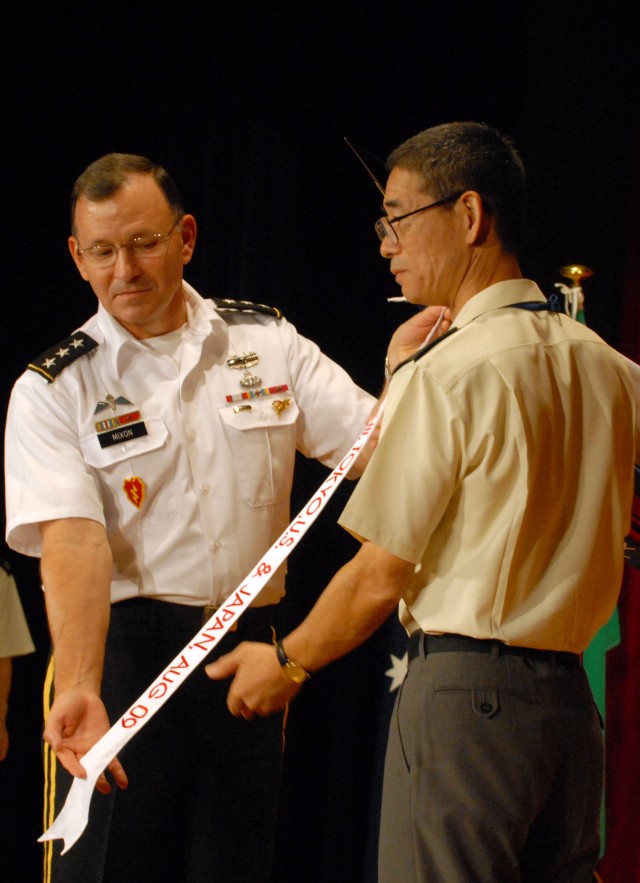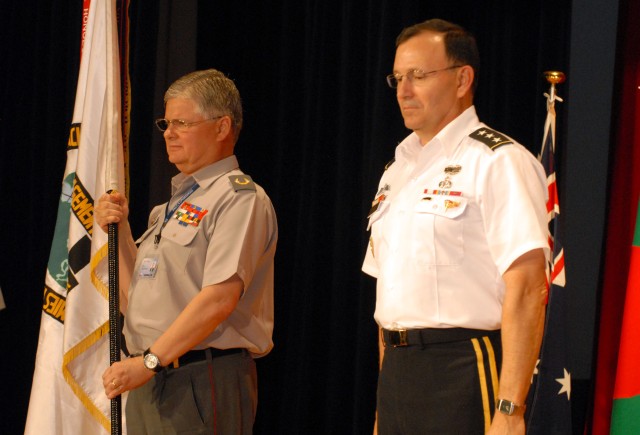TOKYO - Pacific Armies Management Seminar XXXIII came to a close Aug. 28 after a week of intense discussions at the Imperial Hotel, Tokyo.
"At the end of the day, this was a successful seminar," said Lt. Gen Benjamin R. Mixon, commanding general, U.S. Army, Pacific and PAMSXXXIII cohost.
PAMS is the U.S. Army's largest Asia-Pacific Theater Security Cooperation Program event. It is a multinational military seminar that provides a forum for senior-level officers from the Asia Pacific's regional ground forces in U.S. Army, Pacific's area of responsibility to exchange views and ideas.
"I am optimistic this is a starting point," said Tentara Nasional Indonesia-Ankatan Darat, or Indonesian Army, Col. Imam Edy Molyono, director, Command and Staff College about the nation's delegates coming together for "tough discussions."
Mixon said he agreed this seminar is a good starting point for building "relationships, trust and confidence." For one week, senior officers from approximately 30 countries shared thoughts and experiences concerning International Humanitarian Assistance/Disaster Relief in Natural and Human-Induced Disasters.
Molyono also said he was glad to share his country's knowledge and lessons learned about Disaster Relief. He said, while his country is not a pioneer in disaster relief and humanitarian aid, they have many lessons learned from their recent catastrophic earthquake in Aech, on the island of Sumatra, in 2004.
Through that experience, he said, Indonesia changed their policies to better integrate the military into civilian relief organizations in hopes to better help people in the event of another disaster. The lessons also led into the country's ability to help other nations in need. "If something happens in the Pacific, Indonesia is more capable to contribute (to relief efforts)," he said.
While Molyono called the discussions during the week tough, he said he hoped all the delegates learned from the experience and looks forward to the next conference.
PAMS XXXIV is scheduled for next August in Santiago, Chile. Many people wonder what Chile has to do with the Pacific, said Chilean Army Col. Rene Fernandez, Chilean Army Internal Affairs Department, but the country's coastline extends approximately 2,700 miles along the Pacific Ocean.
"We have a deep relation with the Pacific," he said. "Our connection is very close." The theme for the next conference will center on the role land forces play in trans-national threats in the Pacific. "It is a very dynamic issue that constantly changes," he said. Fernandez added the issue is challenging, but he hopes the nations can come together and share their knowledge just as they did this year.




Social Sharing